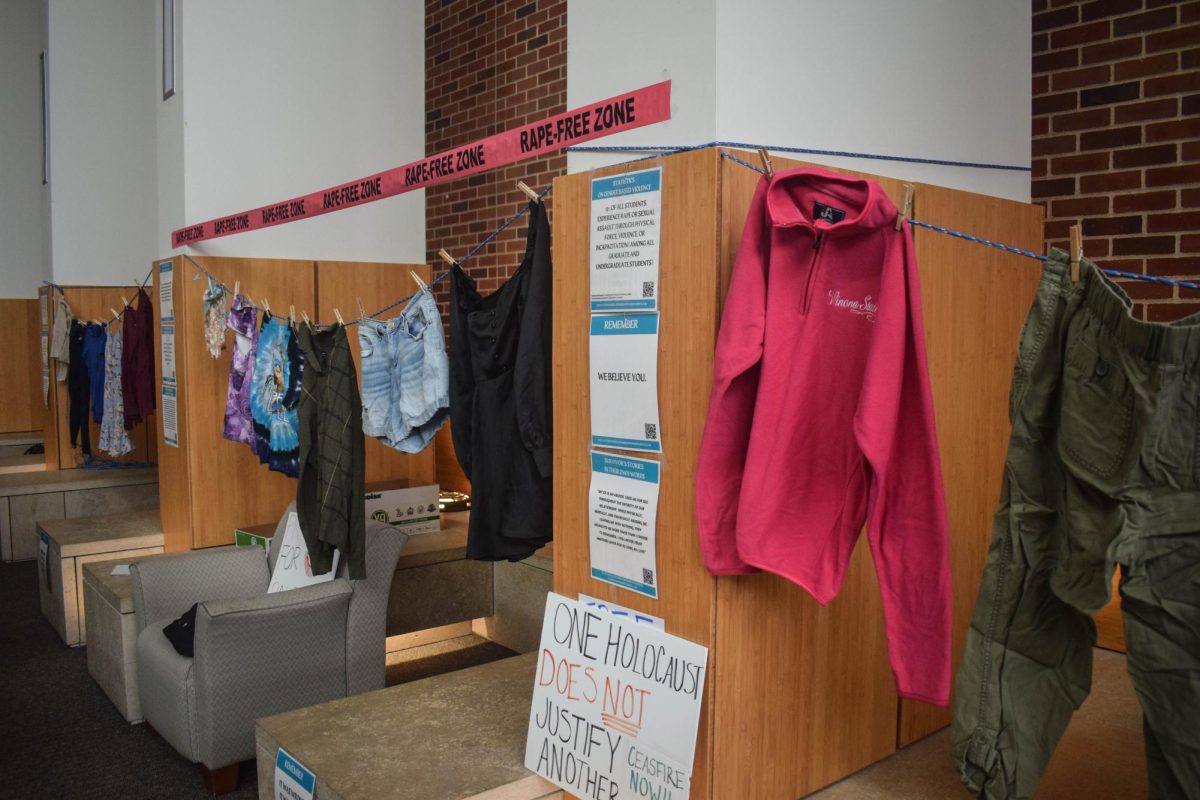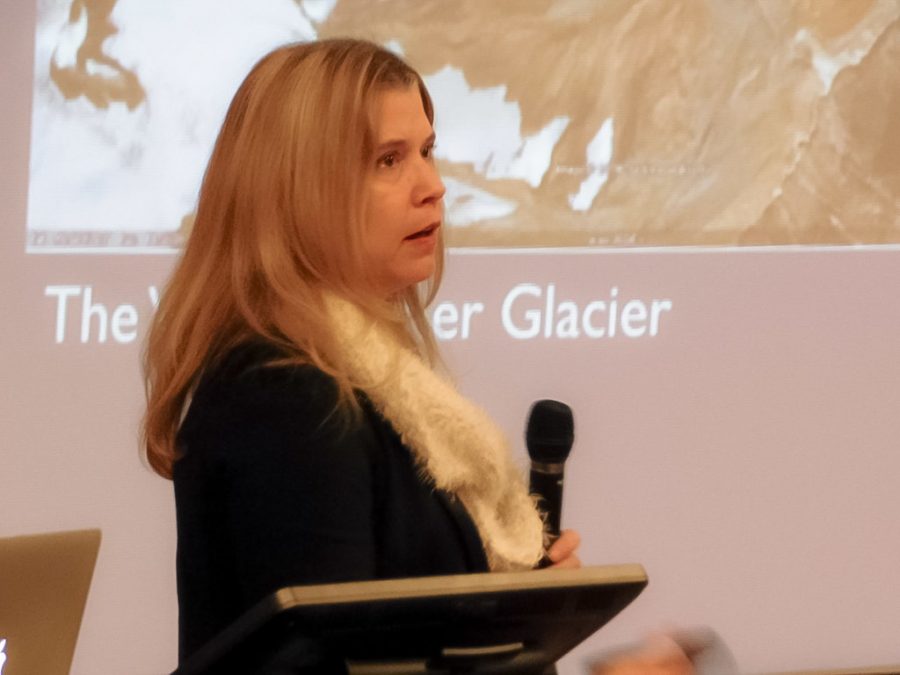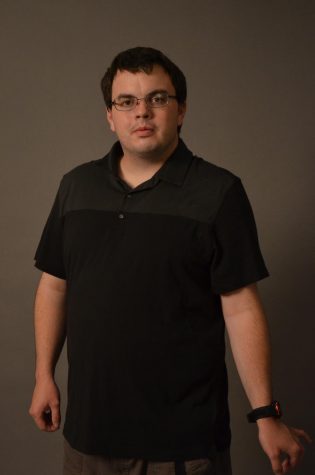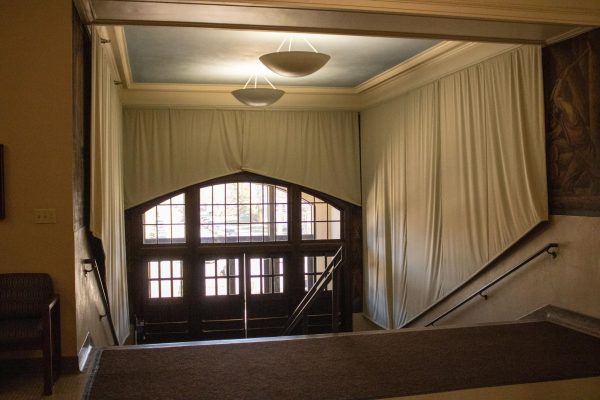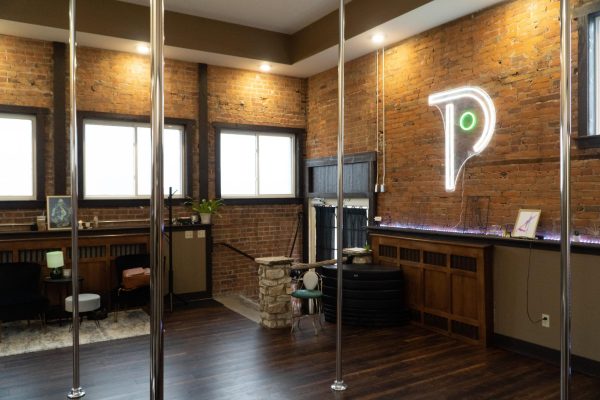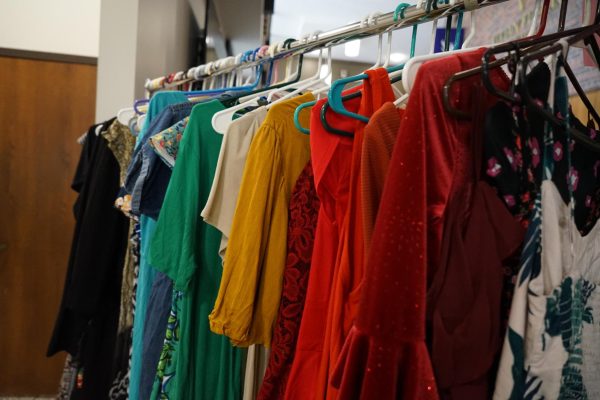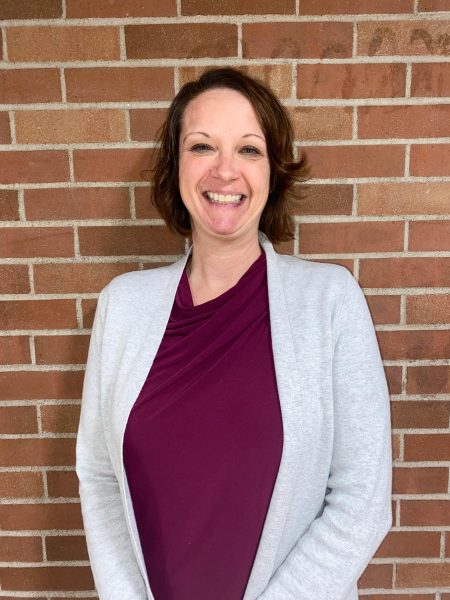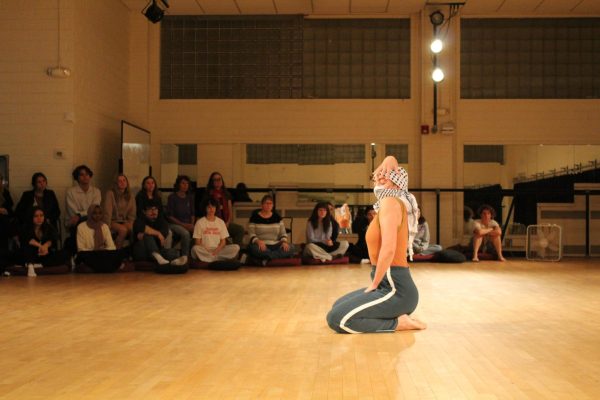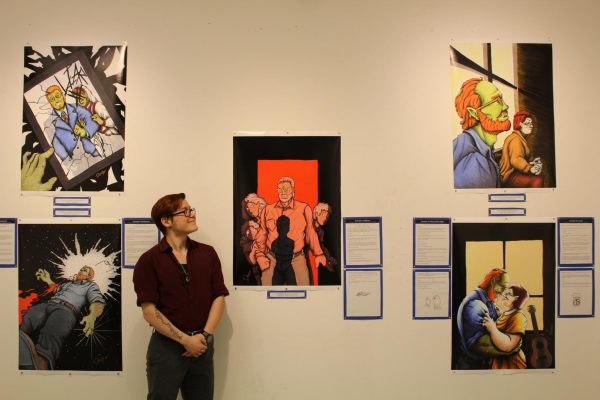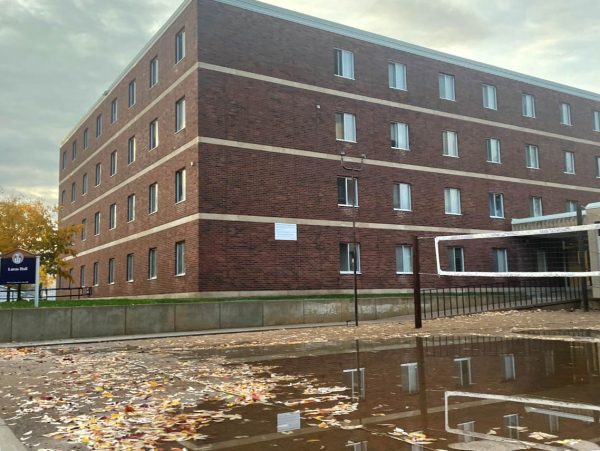Winona State hosts climate crisis talk
Elizabeth Swanstrom, an associate professor of English at the University of Utah, discussed her new book Animal, Vegetable, Digital: Experiments in New Media Aesthetics and Environmental Poetics during the Communicating Climate Crisis presentation at Stark Hall on Friday, Nov. 15, 2019
November 20, 2019
Climate change became a hot topic at Winona State University during the “Communicating Climate Crisis” event that took place in Stark Hall on Nov. 15 from 2-4:30 p.m. The event was hosted by visiting professors Anna Nacher and Elisabeth Swanstrom.
A guest lecture, led by Professor Elisabeth Swanstrom, comprised the first part of the event by focusing on climate change, technology and young people advocating for climate change action. A slideshow helped her lead a discussion on a variety of topics ranging from conservation projects to movies and technology. One of the slides featured a movie called WarGames, which tells the story of a high school student named David Lightman who inadvertently activates the United States of America’s nuclear arsenal during his search for a new video game.
Swanstrom also discussed her career and the backstory of how she became involved in the topic of conservation and climate change.
“I am in the English department at the University of Utah and I teach courses on literature, the history of science, and digital sciences. My primary research interests are how we can use computers and art in ways that help us think through environmental crisis,” Swanstrom said. “Climate change and conversation has been a passion of mine since performing media studies in graduate school.”
Anna Nacher followed up Swanstrom’s lecture by showcasing various media projects produced by her students during this past semester at Winona State University. One video featured a slideshow comprised of edited news media clips and photos from around the world of environmental damage caused by climate change. Another video showed a variety of photos of natural disasters and decimated landscapes to the tune of punk music.
A panel discussion where Nacher and two local environmental activists answered questions from Winona State University visitors, students and faculty brought the event to a close.
After the event, Nacher shared that she would remain at Winona State University for the semester and would be leaving in mid-December.
“Ever since I was a teenager, I have been an environmental activist. I integrate the topic of climate change and conservation into the courses I teach, and my hope is that everyone will start looking around them to find the motivation to get involved because we need engaged, hopeful and optimistic people to make a difference.” Nacher said.
The process of education and political action to reduce the effects of climate change is one that relies heavily on the actions of young people. To many, increasing climate change awareness and encouraging further discussions on climate conversation becomes more important with each passing day.
Nacher believes that we owe it to future generations to drastically reduce our carbon footprint and prevent the climate crisis from reaching the point of no return.
“My personal message to others is to be mindful, don’t build walls, and reach out to others around you,” Nacher said.














